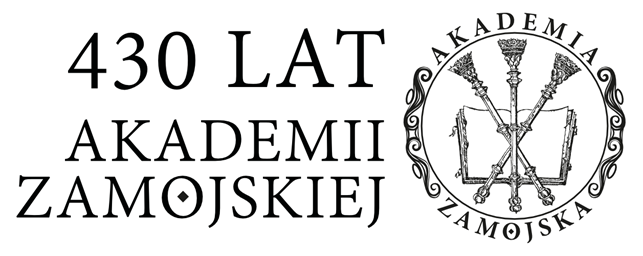Assmann A., Między historią a pamięcią. Antologia, Warszawa 2013.
DOI: https://doi.org/10.31338/uw.9788323514497
Bolecki W., Zamiast wstępu (doświadczenie i modernizm), w: Literackie reprezentacje doświadczenia, red. W. Bolecki, E. Nawrocka, Warszawa 2007, s. 6-11.
Corino K., „Hohes Verschleierungspotential”. Wurden Dissidenten von der DDR radioaktiv bestrahlt?, „Neue Züricher Zeitung”, 16.06.1999.
Dauksza A., Doświadczenie bez nazwy. „Oświęcim” ≠ Auschwitz, „Teksty Drugie”, nr 6/2016, nr 6, s. 233-249.
DOI: https://doi.org/10.18318/td.2016.6.13
Dedecius K., Pochwała Tadeusza Różewicza, Laureata, tłum. E. Dappa, w: K. Dedecius, O Polsce, Europie i literaturze, red. J. Stolarczyk, Wrocław 1996, s. 138-143.
Drawert K., Eine Akte ist eine Akte ist eine Akte, „Neue Züricher Zeitung”, 2/3.05.1998.
Eisenfeld B., Auerbach T., Projektbericht »Strahlen«. Einsatz von Röntgenstrahlen und radioaktiven Stoffen durch das MfS gegen Oppositionelle – Fiktion oder Realität?, Berlin 2002.
Fuchs J., Der Abschied von der Diktatur, in: Aktenkundig, Hrsg. H.J. Schädlich, Berlin 1992, s. 11-37.
Fuchs J., Bearbeiten, dirigieren, zuspitzen. Die „leisen” Methoden des MfS, in: Zersetzung der Seele. Psychologie und Psychiatrie im Dienste der Stasi, Hrsg. K. Behnke, J. Fuchs, Hamburg 1995, s. 44-83.
Fuchs J., Das Ende einer Feigheit, Reinbek 1988.
Fuchs J., Das Erschrecken über die eigene Sprache, in: tenże, Einmischung in eigene Angelegenheiten. Gegen Krieg und verlogenen Frieden, Reinbek 1984, s. 95-103.
Fuchs J., Fassonschnitt, Reinbek 1984.
Fuchs J., Landschaften der Lüge, Jürgen Fuchs über Schriftsteller im Stasi-Netz, „Der Spiegel”, 1991, Nr. 47-51.
Fuchs J., Landschaften der Lüge, Jürgen Fuchs über Schriftsteller im Stasi-Netz (I), „Der Spiegel”, 1991, Nr. 47, s. 280-291.
Fuchs J., Magdalena. MfS, Memfisblues, Stasi, Die Firma, VEB Horch & Gauck – ein Roman, Reinbek 1998.
Fuchs J., Poesie und Zersetzung: Erste Vorlesung in der Reihe Literatur zur Beförderung der Humanität, Hrsg. E. Kratschmer, U. Zwiener, Jena 1993.
Fuchs J., Protokoły przesłuchań, tłum. M. Łukasiewicz, Warszawa 1985.
Fuchs J., Schriftprobe. Frühe Gedichte, Weimar 2001.
Fuchs J., Tagesnotizen. Gedichte, Reinbek 1979.
Fuchs J., „…und wann kommt der Hammer?” Psychologie, Opposition und Staatssicherheit, Berlin 1990.
Fuchs J., Unter Nutzung der Angst. Die „leise” Form des Terrors – Zersetzungsmaßnahmen des MfS, Berlin 1994 (BF informiert, Heft 2).
Fuchs J., Vernehmungsprotokolle. November ’76 bis September ’77, Reinbek 1978.
Herzinger R., VEB Horch & Gauck, „Die Zeit”, 19.03.1998.
Jahn R., My konformiści. Przeżyć w NRD, tłum. G. Prawda, Warszawa 2016.
Kolbe U., Hineingeboren. Gedichte 1975-1979, Berlin-Weimar 1980.
Krajewski A., Numer z ręcznikiem, „Focus”, 6.02.2008.
Kuczyński E., Działalność Urzędu ds. Akt Służby Bezpieczeństwa byłej NRD (BStU). Historia i perspektywy, w: Niemcy, Austria, Szwajcaria. Wyzwania z przełomu XX/XXI w., red. E. Kuczyński, M. Tomczyk, Łódź 2012, s. 39-49.
Kuczyński E. (Hrsg.), Sagen, was ist! Jürgen Fuchs zwischen Interpretation, Forschung und Kritik, Dresden-Wrocław 2017.
Kundera M., Księga śmiechu i zapomnienia, tłum. P. Godlewski, A. Jagodziński, Warszawa 1993.
Kuś B., Magdalena, „Więź”, 2001, nr 7, s. 190.
Matkowska E., System. Obywatel NRD pod nadzorem tajnych służb, Kraków 2003.
Meuser M., Ludwig J., Literatur ohne Land? Schreibstrategien einer DDR-Literatur im vereinten Deutschland, Bd. 2, Eschborn 2014.
Müller H., Der Blick der kleinen Bahnstationen, in: Im Dialog mit der Wirklichkeit. Annäherungen an Leben und Werk von Jürgen Fuchs, Hrsg. E. Kuczyński, Halle 2014.
Nycz R., Literatura nowoczesna wobec doświadczenia, „Teksty Drugie”, 2006, nr 6, s. 55-69.
Orzechowski M., Zdarzyło się w Berlinie. Polak patrzy na mur, Warszawa 2012.
Pięciak W., Jak umarł Jürgen Fuchs?, „Tygodnik Powszechny”, 25.07.1999.
Reszka A., Recepcja prozy Herty Müller w Polsce, Kraków 2017.
Scheer U., Eintauchen in den Orkus der Diktatur, „Die Welt”, 21.03.1998.
Scheer U., Jürgen Fuchs. Ein literarischer Weg in die Opposition, Berlin 2007.
Scheer U., Jürgen Fuchs. Schriftsteller, Bürgerrechtler, Sozialpsychologe. Ein Porträt, Erfurt 2019.
Scheer U., Der letzte Gerechte. Ein Gespräch mit Jürgen Fuchs, „Die Tageszeitung”, 21.03.1998.
Schreiber J., Die Geschichte eines Verdachtes, „Der Tagesspiegel”, 21.06.1999.
Schumann S., Vernichten oder offenlegen? Zur Entstehung des Stasi-Unterlagen-Gesetzes. Eine Dokumentation der öffentlichen Debatte 1990/91, Berlin 2020.
Serke J., Wer sein Gewissen absterben lässt, stirbt an der Seele, „Die Welt”, 16/17.05.1998.
Siemons M., Dreht euch doch weg und lest das Feuilleton, „Frankfurter Allgemeine Zeitung”, 24.03.1998.
Smoleński P., Lekcja wyniesiona z teczek, „Gazeta Wyborcza”, 19.08.1994.
Szabłowska-Zaremba M., „Tragarz pamięci” – rzecz o Stanisławie Wygodzkim, w: Ślady obecności, red. S. Buryła, A. Molisak, Kraków 2010, s. 213-230.
Walther J., Wortkaskaden wie Gottesurteile, „Der Spiegel”, 30.03.1998.
Wegner B., Wenn meine Lieder nicht mehr stimmen, Reinbek 1979.
Wensierski P., In Kopfhöhe ausgerichtet, „Der Spiegel”, 1999, Nr. 20.
Winkler H.A., Długa droga na Zachód. Dzieje Niemiec, t. 1: 1933-1990, tłum. K. Huszcza, V. Grotowicz, Wrocław 2007.
Wirsing S., Der Angeklagte als Ankläger, „Frankfurter Allgemeine Zeitung”, 3.03.1977.
Zagajewski A., Przedmowa, w: U. Rachowski, Miss Zuki, czyli Ameryka jest całkiem blisko!, Wrocław 2015, s. 7-8.
Zybura M. (red.), Pisarze niemieckojęzyczni XX wieku. Leksykon encyklopedyczny PWN, Warszawa 1996.



 Język Polski
Język Polski
 English
English
